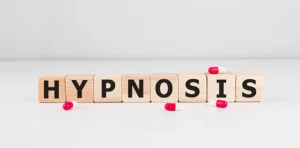Hypnosis has been shown in studies to be an effective treatment for OCD. If you are looking for a proven way to overcome your OCD symptoms, hypnosis may be the answer for you. In this blog post, we will discuss how hypnosis OCD treatment can help you overcome your condition and lead a healthier, happier life.
Contents
What Is Hypnosis OCD Treatment?
 Hypnosis OCD treatment is an innovative form of psychotherapy that uses hypnosis to help people with obsessive-compulsive disorder (OCD) manage and reduce their symptoms. It works by helping the person relax, enter a trance-like state, and access their inner thoughts and feelings. In order to gain insight into how OCD has been affecting them.
Hypnosis OCD treatment is an innovative form of psychotherapy that uses hypnosis to help people with obsessive-compulsive disorder (OCD) manage and reduce their symptoms. It works by helping the person relax, enter a trance-like state, and access their inner thoughts and feelings. In order to gain insight into how OCD has been affecting them.
As OCD is a disorder of thought patterns and behaviors, the goal of hypnosis OCD treatment is to help people identify distorted thoughts and replace them with more positive ones. Hypnosis therapy is often supplemented with cognitive behavioral therapy (CBT) techniques to help the person gain insight and control over their OCD.
With this combination of hypnosis and CBT, people can begin to recognize triggers that lead to obsessive-compulsive behavior. And learn to manage them in healthier ways.
Hypnosis OCD treatment can be beneficial for those who need help breaking free from their compulsions and developing healthier habits. By better understanding their condition and its triggers, they are more likely to gain control over it in the long term.
How Does It Work?
Now, if you are considering hypnosis OCD treatment, you may be eager to know the process. The treatment process is quite simple and straightforward.
First, your therapist will gather information about your OCD symptoms, medical history, and any stressors or other psychological issues that may be contributing to the OCD. This helps the therapist determine a course of action for treating the disorder.
Next, you will discuss goals for therapy. You and your therapist can decide together how to go about addressing your OCD by deciding what techniques you would like to use and any areas of focus that need to be addressed.
After the initial assessment, your therapist will then begin working with you on a plan for hypnosis sessions. During these sessions, you will be put in a relaxed state so that positive suggestions can be given to your subconscious mind. These suggestions can be tailored to address the individual needs of each person.
The number of sessions needed will depend on the severity of your OCD and any other psychological issues that need to be addressed. Generally, it is recommended that at least 10 sessions be completed in order to gain the full benefit of hypnosis.
Hypnosis OCD treatment can help you reduce stress and anxiety, and reassess your relationship with yourself. And learn healthier ways of thinking and behaving. With committed effort, this form of therapy may lead to improved mental health.
What Techniques Do Hypnosis Therapy Use?
 Though the process may seem simple and lacks structure, hypnotherapy is a complex procedure that requires preparation and skill. The therapist must be able to create an environment of trust and confidence so that the client can feel safe in exploring their subconscious.
Though the process may seem simple and lacks structure, hypnotherapy is a complex procedure that requires preparation and skill. The therapist must be able to create an environment of trust and confidence so that the client can feel safe in exploring their subconscious.
During hypnosis, the therapist will use various techniques to help the individual access their unconscious mind. These techniques may include:
- Visualization – The client is asked to imagine a pleasant scene or situation while they relax. This helps the person enter into a trance-like state, which allows them to access the subconscious mind.
- Relaxation – The therapist will use various relaxation techniques such as breathing exercises, guided meditation, and progressive muscle relaxation to help the individual relax. This can also help the client to access their subconscious.
- Hypnotic Suggestion – The therapist will use positive suggestions to help the individual focus on a desired behavior or outcome while they are in a state of hypnosis. These suggestions can be used to reinforce positive habits and change negative behaviors.
- Guided Imagery – The therapist may ask the individual to imagine themselves in different settings or scenarios. This can help them explore their subconscious and find new ways of thinking about their situation or problem.
- Neuro-Linguistic Programming (NLP) – NLP is a form of therapy that uses language patterns to help an individual rewrite certain patterns of behavior and thought. The therapist will use a combination of hypnosis, visualization, and language patterns to help the client gain new insight into their behavior.
These techniques can be used alone or in combination with other methods of therapy depending on the individual’s needs. With the help of hypnotherapy, individuals are able to better understand their emotions and behaviors.
What Are The Benefits?
The benefits of hypnosis OCD treatment are vast. Some of these are listed below:
- Reduction of anxiety and avoidance behaviors: OCD can make you feel anxious, scared, and overwhelmed. Through hypnosis, the irrational fears that drive obsessive thinking can be reduced or eliminated. This helps to reduce anxiety and avoidance behaviors that are associated with the condition.
- Improved self-confidence: OCD sufferers often feel like they have little control over their thoughts and behaviors. Hypnosis can help to reassert control over your own thoughts and actions, increasing self-confidence in the process.
- Improved focus: OCD sufferers often experience difficulty concentrating due to intrusive, obsessive thoughts. Hypnosis can help improve focus by calming and relaxing the mind, allowing you to better direct attention where it is needed.
- Improved emotional regulation: Hypnosis can help improve awareness of the emotions that trigger obsessive thoughts, so you can better manage how you react to them. This improved emotional regulation makes it easier to cope with difficult or uncomfortable situations.
- Increased relaxation: This therapy can help promote deep relaxation, allowing you to better manage stress levels and reduce fatigue. This improved relaxation makes it easier to maintain a positive outlook and cope with difficult situations.
Overall, hypnosis can be an effective and non-invasive treatment for OCD that helps to minimize symptoms and increase the quality of life. If you’re considering trying hypnosis for your OCD, talk to a qualified mental health professional who can guide you through the process.
What Is The Success Rate Of Hypnosis OCD Treatment?
 The success rate of hypnosis OCD treatment varies depending on factors such as:
The success rate of hypnosis OCD treatment varies depending on factors such as:
- the type of OCD
- the severity of the condition
- duration of symptoms
- individual differences in response to therapy
Generally speaking, studies have found that between 75-90% of individuals with OCD will experience a significant reduction in their obsessive-compulsive symptoms. If they are compliant with their treatment plan, most individuals can expect to see a significant reduction in OCD symptoms.
Some patients may find that after undergoing hypnosis OCD treatment they are completely free of the disorder. And no longer experience any intrusive thoughts or compulsive behaviors. Other patients may find that they still experience some intrusive thoughts and compulsions. But these are significantly reduced and no longer interfere with daily living.
Overall, hypnosis OCD treatment has been found to be an effective form of therapy for many individuals suffering from the disorder. With adherence to therapy protocols and a willingness to work through their symptoms, patients can expect to experience significant relief.
Are There Any Risks?
Well, when it comes to risk with any type of treatment, there are always some risks involved. With OCD hypnosis treatment also, there are some risks. These include:
- A heightened sense of anxiety or agitation, as the mind is opened up to intrusive thoughts and feelings.
- Hypnosis can worsen certain mental health issues like depression or psychosis.
- It can also lead to false memories, which could cause distress if not addressed properly.
While these risks are very real. It is important to remember that hypnosis has helped many people with OCD manage their symptoms. With the right therapist, a person can enjoy the benefits of this treatment in a safe and effective manner.
What Other Treatments Can Help With OCD?
If hypnosis therapy for OCD may not be an option for you. Then, there are other treatments that have proven to be effective in helping people manage their OCD symptoms. These include:
- Cognitive Behavioral Therapy (CBT): CBT is a type of talk therapy that helps people identify and challenge their irrational thoughts, replace them with more realistic ones, and learn healthier ways to cope.
- Exposure and Response Prevention (ERP): ERP is a form of cognitive behavioral therapy in which people are exposed to situations or things that cause distress. And then taught how to cope with them without engaging in compulsive behaviors or rituals.
- Medication: Certain medications, such as selective serotonin reuptake inhibitors (SSRIs) are often prescribed to treat OCD. SSRIs help to balance the levels of serotonin in the brain and can reduce symptoms of OCD. It is important to talk to your doctor and discuss the pros and cons of any medication before taking it.
- Support Groups: Joining a support group can be helpful in managing symptoms of OCD. In these groups, individuals gather together to share their experiences and provide emotional support for one another. This can help reduce feelings of isolation and help individuals better understand and manage their OCD.
- Self-Help Strategies: Self-help strategies, such as maintaining a daily routine and practicing relaxation techniques can also be helpful in managing symptoms of OCD. Additionally, setting realistic goals, challenging unhelpful thoughts, and making sure to take time for yourself each day can help reduce stress levels associated with OCD.
Ultimately, the most important thing is to seek professional help if you are feeling overwhelmed by your OCD symptoms and believe they are impacting your daily life. A mental health professional can provide guidance and support to help you manage your symptoms in a way that works for you.
Conclusion
In conclusion, hypnosis OCD treatment can be a viable option for people suffering from this disorder. While it may not work for everyone, it has been shown in research studies to be successful in relieving symptoms. It is important to note that the treatment must be administered by a qualified hypnotherapist. And should not be attempted without guidance.
Therefore, consult with a professional mental health provider before attempting this form of treatment. And be sure to find a qualified hypnotherapist who can provide the necessary guidance and support throughout the process.
Don’t hesitate to contact us immediately for more information! OCD is a mental health disorder characterized by obsessions and compulsions. Contact us today if you have any queries regarding OCD treatment, or ERP therapy the experienced therapists at OCDMantra can help: Book a trial OCD therapy session


